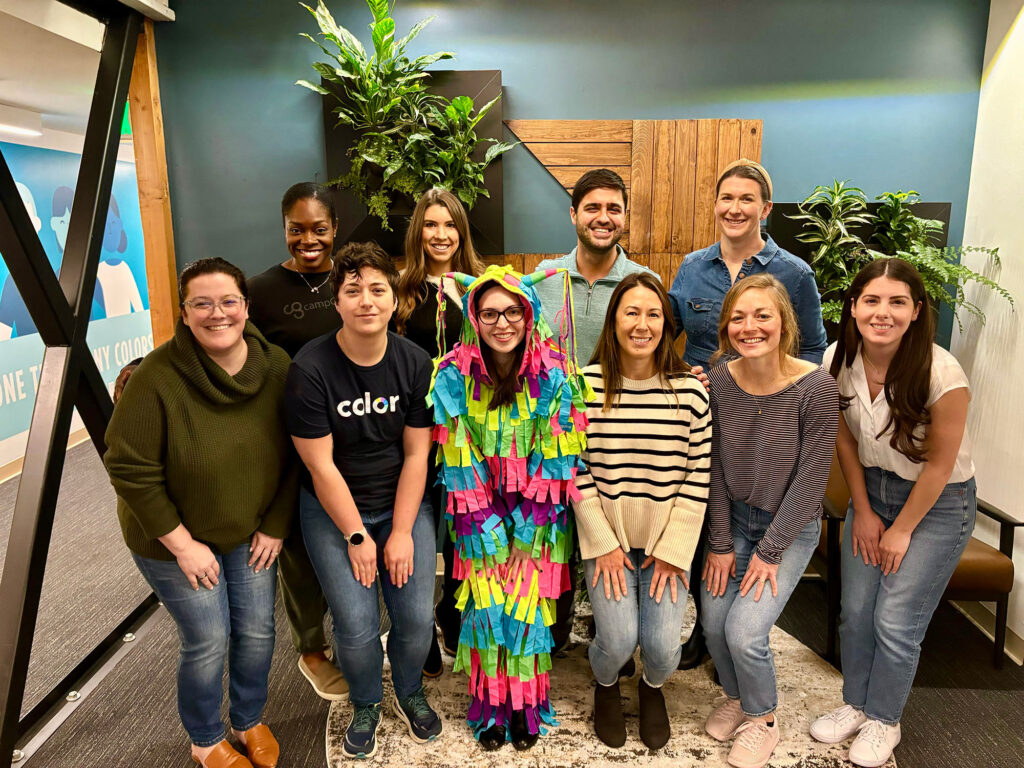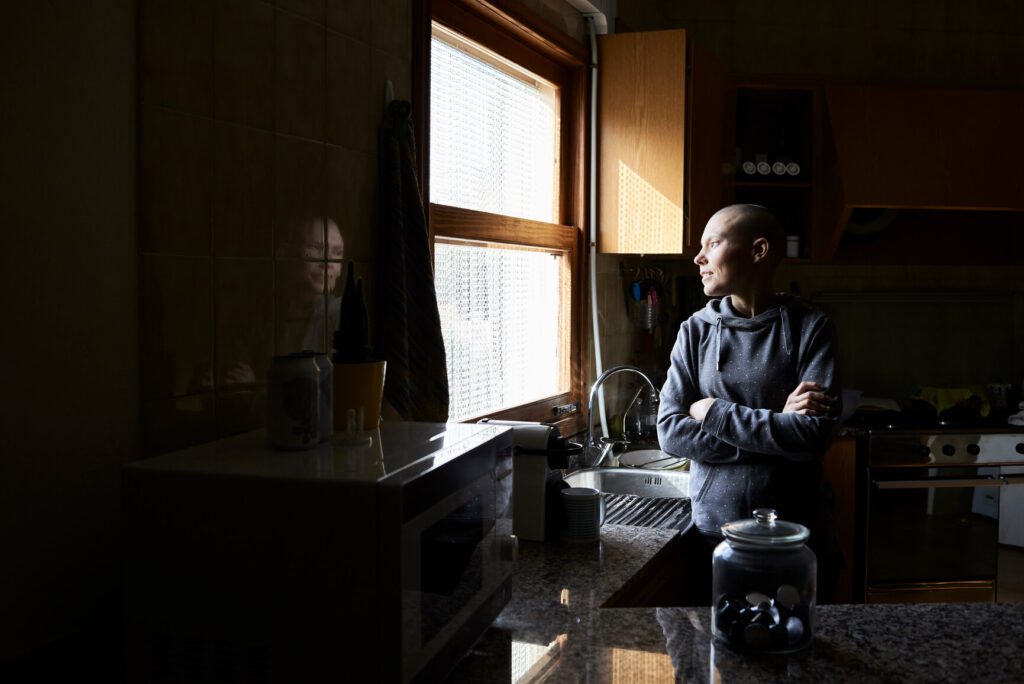News & Articles
Cancer Touches Everyone – Color
Color Genomics
Everyone’s life has been touched by cancer. There are millions of survivors among us. Our family members and friends have suffered from cancer or passed away from the disease. The intrusion of this disease into our lives leaves a trail of incomprehension. While the apparent randomness of cancer brings a deep feeling of helplessness, we believe that it is possible to empower individuals and families with knowledge that can enable them to understand and manage their genetic risk of cancer.
Members of the Color team have seen cancer affect the lives of their loved ones or worked to fight the disease as physicians and researchers. One of us carries a variant of the BRCA2 gene that causes a high risk for breast cancer and has multiple family members affected by the disease. Another has lost two grandparents to rare cancers and worked on cancer genetics for a Ph.D., while a third is a physician who has worked on breast cancer. And while all of us have experienced cancer differently, we are all connected by a belief in the power of shining the bright light of data on the disease. Knowing one’s genetic predispositions to disease can help a person plan ahead, and work with their physician to make choices they otherwise would not be able to. We have seen firsthand how powerful genetic information is — and believe that no person should be denied access to understanding their genetic risk of cancer. This is why we founded Color.
While most cancers occur for reasons other than family inheritance, at least 10–15% 1, 2, of breast and ovarian cancers have a genetic cause that is passed down through families. The best known of these familial cancer genes are BRCA1 and BRCA2. Women with a mutation in BRCA1 face up to an 80% risk of developing breast cancer, and up to a 50% risk of developing ovarian cancer by the age of 80 4.
Unfortunately, while we have known about these genes for 20 years, access to genetic testing has been severely limited by cost. As Angelina Jolie points out in her op-ed pieces for the New York Times [1, 2], the best known BRCA test costs approximately $4,000. This puts it out of reach for most people.
The Color Test: Democratizing Access to Genetic Testing
Color is democratizing access to genetic testing. Every woman should have the choice and opportunity to get tested for her genetic risk of breast and ovarian cancer in an affordable, accessible, high-quality way. Knowledge of a woman’s genetic risk empowers her to work with her physician to develop a personalized plan based on that information.
To meet these goals, we have built a 19-gene test, including BRCA1 and BRCA2, that costs only $249, or 1/10th of the cost of comparable services. The Color Test analyzes the major genes currently known to impact a woman’s risk of breast and ovarian cancer. All Color tests are ordered by a physician — either a woman’s physician or an independent physician who will review her information and order testing on her behalf. Tests are performed in our CLIA-certified laboratory. All Color tests include genetic counseling at no additional cost. More information on the Color Test can be found at www.getcolor.com.
Genetic Counseling Support
Members of the Color team have seen firsthand the power of knowing one’s genetic risk of cancer, and we ensure that genetic information is provided to a woman with proper support and expertise. Color test results are provided directly to the ordering physician. Every Color Test includes access to Color’s board-certified genetic counselors at no additional charge. Our genetic counselors are available to explain and discuss results and answer any questions a woman may have.
Knowledge Empowers
The Color Test provides information that empowers women to work with their healthcare providers to develop a personalized plan that can have a dramatic impact on their lives. Once a woman understands her genetic risk, she can work with her healthcare provider to tailor a screening and prevention plan around her family and individual priorities. While carrying a genetic mutation does not necessarily mean that a woman will get cancer, knowledge of her genetics enables her and her physician to personalize future care.
Building An Affordable BRCA Test
We have been developing the Color Test for two years. Building a high-quality, but affordable test required significant investments in software design, big data, bio-informatics, CLIA compliance, laboratory automation, and genetics. By marrying multiple emerging disciplines, we have developed something many did not think was possible — a high-quality, yet affordable genetic test for BRCA1, BRCA2, and 17 other key genes.
Scientific Collaborators
As part of this journey, we have had the privilege of being advised by some of the top scientific minds in cancer genetics. Mary-Claire King, Ph.D. and Tom Walsh, Ph.D. both at the University of Washington, have advised us on bioinformatics, our CLIA laboratory, and interpretation of mutations in key genes. Similarly, our scientific collaborators at the University of California, San Francisco — Laura van’t Veer, Ph.D., Beth Crawford, M.S., L.C.G.C., and Laura Esserman, M.D., M.B.A. — have helped drive our thinking on genetic tests, genetic counseling, and risk-based genetic testing.
Every Woman Should Have Access
We want every woman to have the opportunity to know if she is at genetic risk of breast or ovarian cancer, regardless of her financial situation. To help fulfill our mission, we are launching the Every Woman Program in addition to the Color Test. We are partnering with major cancer centers including UCSF and UW to provide free testing to women who are unable to afford it. Also, as part of the Color purchase process, women buying their own tests can choose to donate money to help support a woman who cannot afford testing. Together, we can make this valuable health information truly and broadly accessible.
What About Men?
Color is available to both women and men. Men may carry a mutation in one of the genes that Color analyzes and can benefit from testing as well. They can understand if daughters or other family members could carry a critical mutation, or if they could pass a mutation to their future children. Depending on the gene and mutation, men may also have elevated risks for certain cancers, including male breast cancer.
Enabling Open Research Into Cancer
A major impediment to advancing medical progress in cancer genomics has been the unwillingness of some organizations to make aggregate, anonymous data available for use by the larger research community. As part of getting tested by Color, people can choose to help advance medical research. We will be publishing known gene variants, in aggregate and anonymized form, in open scientific databases such as the National Center for Biotechnology Information’s ClinVar, in order to advance cancer research. These databases are used by medical researchers to discover links between genetics and disease. The genetic variants cannot be traced back to any individual person. Additionally, data is stored by Color in a manner compliant with HIPAA. It is secure and ensures the privacy of people taking the Color Test.
Moving Forward
Color’s goal is to democratize access to genetic testing. This is our first step in fulfilling that mission. Knowledge is power, and we hope to empower women and men with affordable and actionable genetic information.



